‘Terror probe’ into fire and ‘time to deliver’ on immigration
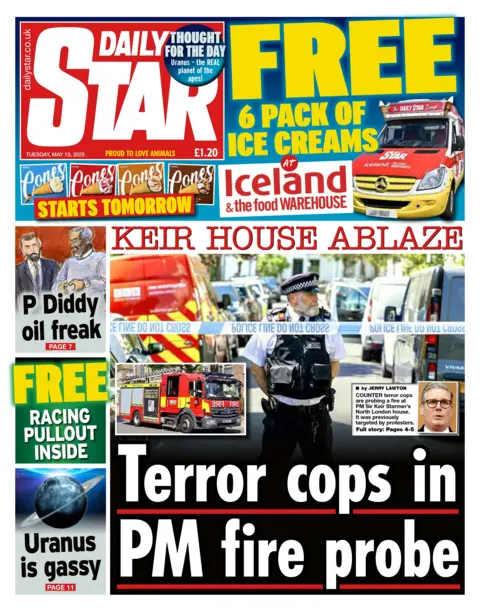
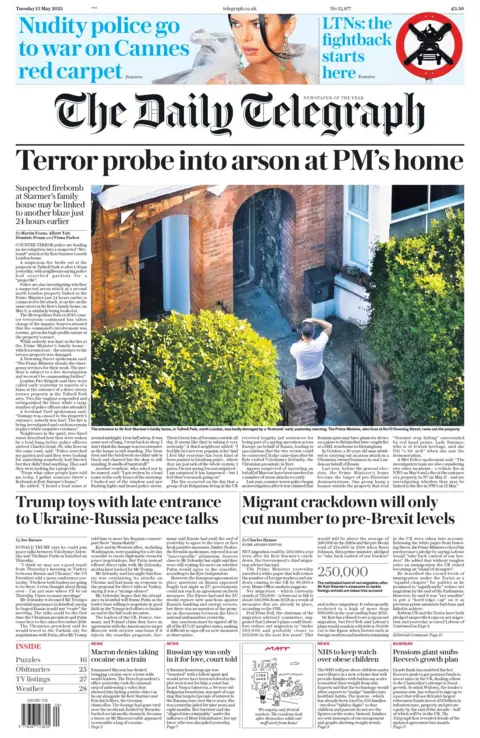
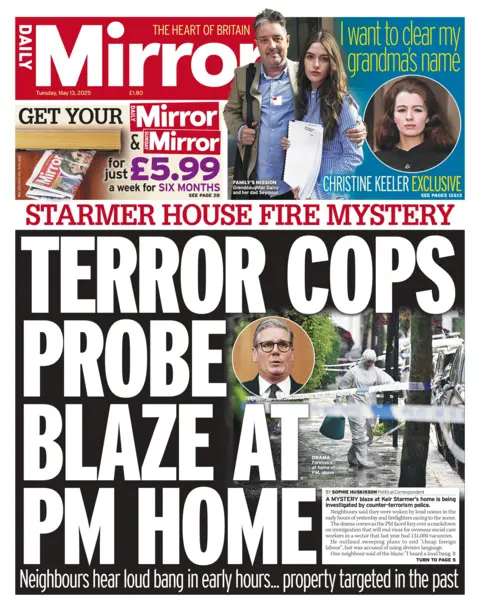
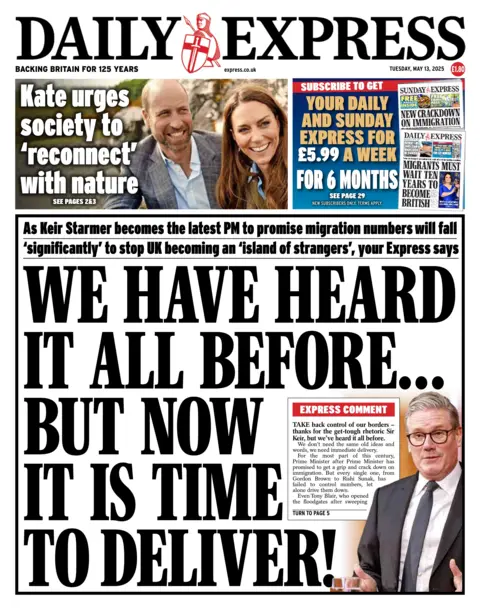
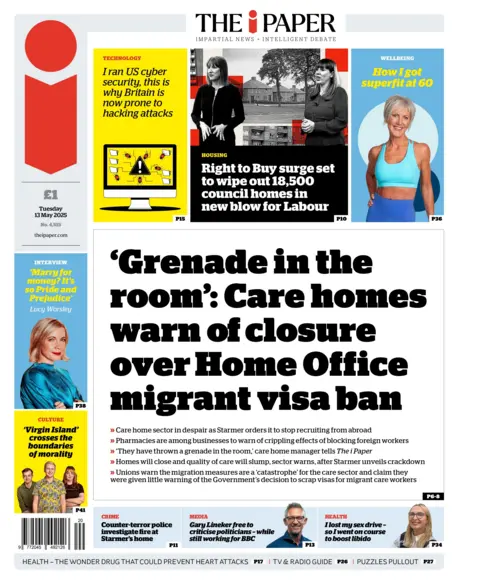
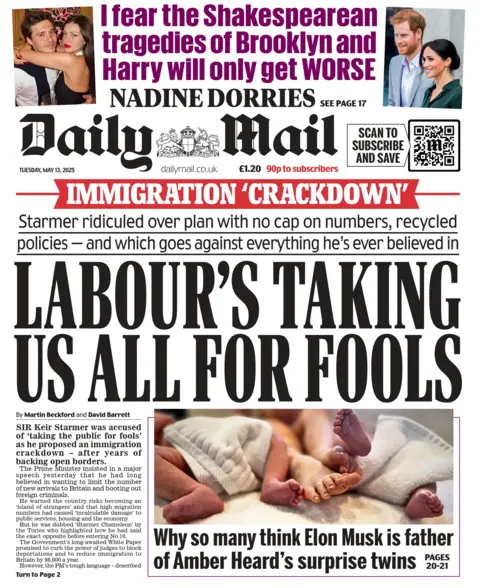
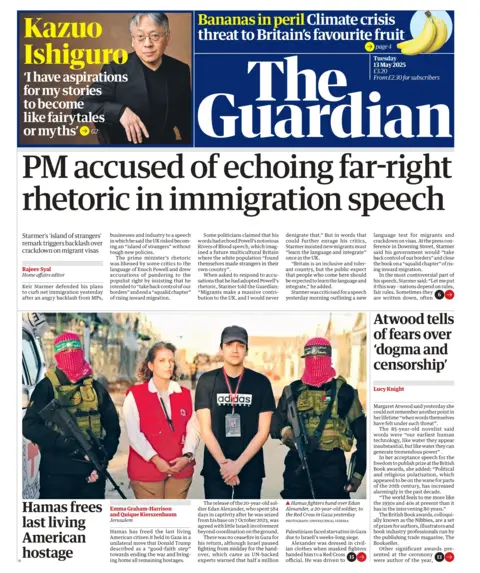
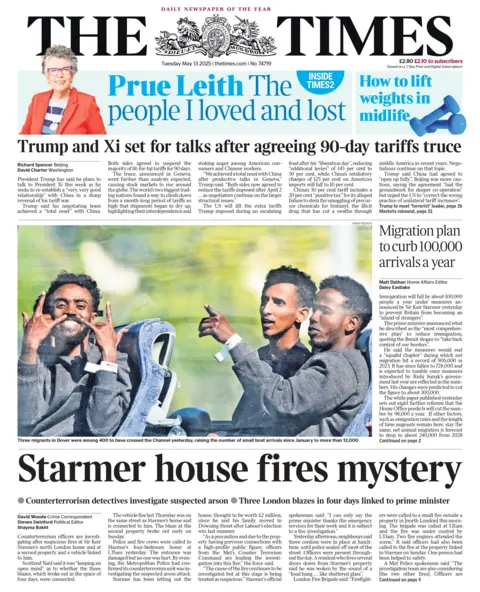
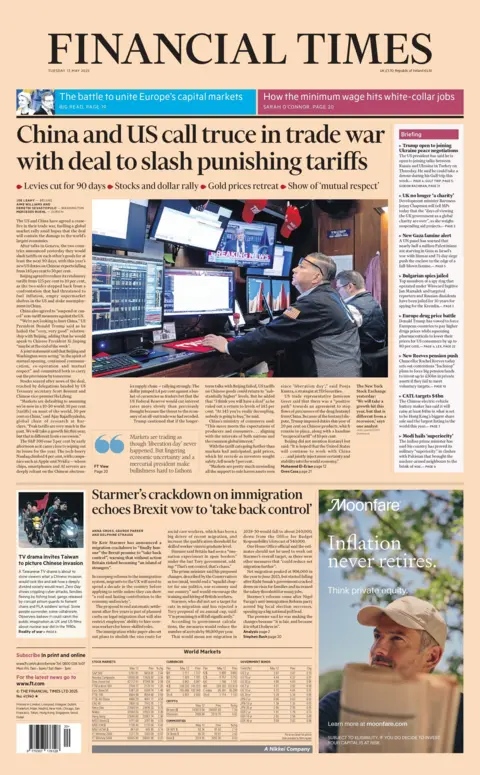
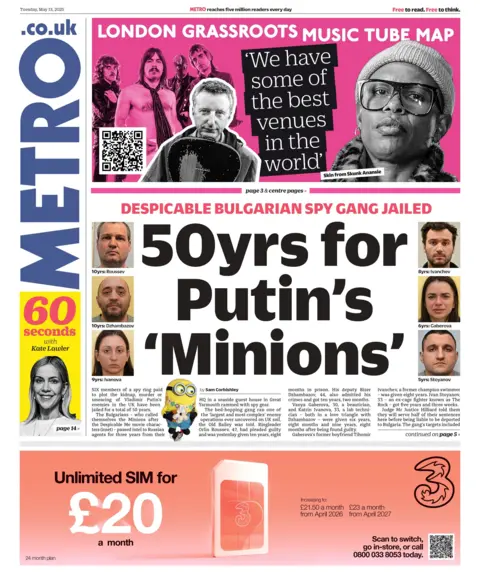


























Interior Ministry urges residents to stay home and avoid movement, warning of further instability.
The United Nations has called for urgent de-escalation in Libya’s capital, Tripoli, as rival gunmen exchanged fire in the city’s southern districts after the killing of a powerful militia leader, prompting authorities to impose an emergency lockdown warning.
Residents reported hearing heavy gunfire and explosions across multiple neighbourhoods from about 9pm local time (19:00 GMT), according to journalists on the ground.
Reporting from Libya’s Misrata, Al Jazeera’s Malik Traina said security sources had confirmed the killing of Abdel Ghani al-Kikli, widely known as “Gheniwa”, who is the head of the powerful Stability Support Authority militia.
Gunfire and clashes then consumed several parts of Tripoli.
Al-Kikli was one of the capital’s most influential militia leaders and had recently been involved in disputes with rival armed groups, including factions linked to Misrata.
Traina said that at least six people have been injured, although it remains unclear whether they are security force members or civilians.
“People are angry that every time these armed groups clash, civilians are caught in the crossfire,” he continued, adding that residents are demanding “accountability”.
“When these groups fight and people are killed, no one is held responsible. Locals want justice, and expect the authorities to hold those behind the violence accountable,” he said.
In a statement early on Tuesday, the UN Support Mission in Libya (UNSMIL) said it was “alarmed by the unfolding security situation in Tripoli, with intense fighting with heavy weaponry in densely populated civilian areas”.
UNSMIL added that it “calls on all parties to immediately cease fighting and restore calm, and reminds all parties of their obligations to protect civilians at all times”.
UNSMIL is alarmed by the unfolding security situation in Tripoli, with intense fighting with heavy weaponry in densely populated civilian areas.
The Mission calls on all parties to immediately cease fighting and restore calm, and reminds all parties of their obligations to… pic.twitter.com/SZ8oKgZ1p8— UNSMIL (@UNSMILibya) May 12, 2025
UNSMIL voiced support for local mediation efforts, particularly those led by elders and community leaders, emphasising the need to protect civilians amid mounting tensions.
The Ministry of Internal Affairs urged residents to stay home and avoid movement, warning of further instability. Meanwhile, the Ministry of Education suspended classes across Tripoli on Tuesday, citing the deteriorating security situation.
Libyan social media platforms have been flooded with videos and images showing gunfire, plumes of black smoke rising, armed men in the streets and convoys entering the city.
Footage verified by Al Jazeera’s Sanad fact-checking agency captured the sound of medium-calibre gunfire in several neighbourhoods, including areas where the Stability Support Authority militia is known to operate.
Several districts have seen what local sources describe as “suspicious military manoeuvres”, with convoys arriving from Az-Zawiyah, Zintan, and Misrata – seen by many as preparations for a possible showdown in the capital.
The country plunged into chaos following a NATO-backed uprising that toppled and killed Libyan leader Muammar Gaddafi in 2011. The oil-rich nation has been governed for most of the past decade by rival governments in eastern and western Libya, each backed by an array of fighter groups and foreign governments.
Video from the Israeli military showed the moment of US-Israeli citizen Edan Alexander reuniting with his family.
Source link
Move comes as US administration largely closes refugee admissions from countries experiencing widespread violence and poverty.
A group of 59 white Afrikaners from South Africa has arrived in the United States as part of a refugee programme set up by the administration of US President Donald Trump to offer sanctuary from what Trump has depicted as racial discrimination against white people.
In a press conference on Monday, Trump mirrored the claims of a myth popular on the far right that white people in South Africa have been subjected to systematic violence since the end of white minority rule in that country.
“It’s a genocide that’s taking place,” Trump told reporters at the White House, a claim that has drawn criticism from government officials, news media, and even some Afrikaners themselves.
The move comes as the Trump administration blocks nearly all refugee admissions from non-white countries and leans into rhetoric about an “invasion” of immigrants from poor countries.
While people fleeing widespread violence and persecution in countries such as Haiti and Afghanistan have found a closed door, Al Jazeera correspondent Patty Culhane says that the Trump administration “has made a priority of getting these people [white South Africans] into the United States and paying for them to get here”.
The South African government has called Trump’s claims that Afrikaners face persecution “completely false”, noting that they have remained among the richest and “most economically privileged” groups, even after the end of the apartheid system that upheld white minority control of the political, economic, and military resources of the country and denied basic rights to the Black South African majority.
South African whites still own about three-quarters of all private land in the country, and have about 20 times the wealth of the Black majority, according to the international academic journal the Review of Political Economy.
“We think that the American government has got the wrong end of the stick here, but we’ll continue talking to them,” South African President Cyril Ramaphosa, himself a veteran of the struggle to end apartheid, said on Monday.
Tensions between the Trump administration and the government of South Africa have been high, with the US expelling South Africa’s ambassador over previous criticism of Trump and at odds with the African nation’s prominent position in a case before the International Court of Justice accusing US ally Israel of genocide in Gaza.
The Trump administration offered in February to resettle Afrikaners, descendants of Dutch settlers in South Africa, stating that they face discrimination and violence against Afrikaner farmers.
“I want you all to know that you are really welcome here and that we respect what you have had to deal with these last few years,” Deputy Secretary of State Christopher Landau told the group of Afrikaners who arrived in the US on Monday. “We respect the long tradition of your people and what you have accomplished over the years.”
Bill Frelick, refugee policy director with Human Rights Watch, said the fast-track process of bringing Afrikaners into the US was unprecedented.
“These are people who were not living in refugee camps; who hadn’t fled their country. They were the group that was most associated with the oppression of the Black majority through apartheid,” said Frelick. “It’s not like these are among the most vulnerable refugees of the world.”
Business reporters, BBC News
Share markets jumped on Monday after President Trump said weekend talks had resulted in a “total reset” in trade terms between the US and China, a move which goes some way to defuse the high stakes stand-off between the two countries.
The talks in Switzerland resulted in significant cuts to the tit-for-tat tariffs that had been stacked up since January on both sides.
The US will lower those tariffs from 145% to 30%, while China’s retaliatory tariffs on US goods will drop to 10% from 125%.
President Trump told reporters, that, as some of the levies have been suspended rather than cancelled altogether, they might rise again in three months time, if no further progress was made.
However, he said he did not expect them to return to the previous 145% peak.
“We’re not looking to hurt China,” Trump said after the agreement was announced, adding that China was “being hurt very badly”.
“They were closing up factories. They were having a lot of unrest, and they were very happy to be able to do something with us.”
He said he expected to speak to Chinese President Xi Jinping “maybe at the end of the week”.
Investors welcomed the de-escalation. The S&P 500 index jumped more than 3.2% after the announcement, while the Dow climbed 2.8% and the Nasdaq had surged 4.3% by the end of the day.
The gains left the indexes roughly where they started the year, fully recovered from the losses they sustained in the aftermath of the 2 April tariffs announcement, dubbed “Liberation Day” by the Trump administration.
Framed as a campaign to give Americans a fairer deal from international trade, the US announced a universal baseline tariff on all imports to the US.
Around 60 trading partners, which the White House described as the “worst offenders”, were subjected to higher rates than others, and this included China.
Beijing retaliated with tariffs of its own, which led to levies being ratcheted up on both sides, sending shares sharply lower.
Under the new agreement, the US is reducing the “reciprocal” tariff on Chinese goods that it announced on “Liberation day” to 10%. But it said the higher levy rate was being suspended for 90 days, rather than removed permanently.
The US is also keeping in place the extra 20% tariff aimed at putting pressure on Beijing to do more to curb the illegal trade in fentanyl, a powerful opioid drug.
For its part, China is also reducing to 10% the retaliation tariffs they put in place in response to Trump’s “Liberation day” announcement, again suspended for three months.
China has also agreed to “suspend or remove” all non-tariff measures against the US.
Pre-existing tariffs, including higher sector-specific tariffs on things like steel and cars, remain in place.
However, additional retaliatory tariffs, that were added subsequently, have been cancelled altogether on both sides.
The retreat comes as the first impacts from the tariff-war were beginning to show, with US ports reporting a sharp drop in the number of ships scheduled to arrive from China.
Factory output has slowed in China, and there are reports of firms laying off workers, as US orders dried up.
China’s commerce ministry said the agreement was an important step to “resolve differences” which would help to “deepen co-operation”.
Tat Kei, a Chinese exporter of personal care appliances to the US, whose factory employs 200 people in Shenzhen, welcomed the announcement, but said he still feared what else might be to come.
“President Trump is going to be here for the next three-and-a-half years. I don’t think this is going to be the end of it… not by a long shot,” he told the BBC.
Elaine Li, head of Greater China at Atlas Ways, which offers services for Chinese enterprises’ global development, also said she believed many Chinese firms would treat the reprieve as temporary.
“For businesses, the best they can do is build a moat around their company before the next round of tariffs arrives,” she said.

 Getty Images
Getty ImagesOn Wall Street Target, Home Depot and Nike were among companies that saw their share price rise sharply on the news. Tech firms including Nvidia, Amazon, Apple and Facebook-owner Meta also moved sharply higher.
European stocks rose on Monday, and earlier Hong Kong’s benchmark Hang Seng Index had ended the day up 3%.
The deal has boosted shares in shipping companies, with Denmark’s Maersk up more than 12% and Germany’s Hapag-Lloyd jumping 14%.
Maersk told the BBC the US-China agreement was “a step in the right direction” and that it now hoped for “a permanent deal that can create the long-term predictability our customers need.”
In the US, the National Retail Federation (NRF) said it was encouraged by the “constructive” negotiations.
“This temporary pause is a critical first step to provide some short-term relief for retailers and other businesses that are in the midst of ordering merchandise for the winter holiday season,” said NRF president Matthew Shay.
The International Chamber of Commerce said the deal sent a clear signal that the US and China both wanted to avoid a “hard decoupling”.
“Ultimately, we hope this weekend’s agreement lays the foundation to lift the cloud of trade policy uncertainty that continues to weigh on investment, hiring, and demand across the world,” said deputy secretary-general, Andrew Wilson.
The gold price – which has benefited from its safe-haven status in recent weeks given the disruption caused by the tariffs – fell 3.1% to $3,223.57 an ounce.
Protesters in Basel condemned Israel's participation in the Eurovision Song Contest amid the ongoing war in Gaza.
Source link
United States President Donald Trump descends on Tuesday on the Middle East for a regional tour that will begin in Saudi Arabia and include stops in the United Arab Emirates and Qatar. It is a business trip in every sense of the term, involving potentially trillions of dollars in investment and trade deals.
The UAE, for example, has already pledged $1.4 trillion in investments to the US over 10 years in sectors ranging from artificial intelligence and energy to mining and aluminium production. Saudi Arabia, for its part, has committed to investing $600bn in the US over the next four years. According to the Reuters news agency, Trump will also be offering the kingdom an arms package to the tune of $100bn.
Meanwhile, in keeping with the president’s solid history of nepotism and self-enrichment, it just so happens that the Trump Organization is currently presiding over real estate projects and other business ventures in all three Gulf countries he is slated to visit.
And yet one country is conspicuously absent from the regional itinerary despite being the US’s longstanding BFF in the Middle East: Israel, the nation that has for the past 19 months been perpetrating genocide in the Gaza Strip with the help of gobs of US money and weaponry. The official Palestinian death toll stands at nearly 53,000 and counting.
Although the genocide kicked off on the watch of his predecessor President Joe Biden, Trump was quick to embrace mass slaughter as well, announcing not long after reassuming office that he was “sending Israel everything it needs to finish the job” in Gaza. It appears, however, that Israel is taking a bit too long for the US president’s liking – particularly now that Israeli Prime Minister Benjamin Netanyahu has prescribed an intensified offensive against an enclave that has already been largely reduced to rubble.
The issue, of course, is not that Trump cares if Palestinian children and adults continue to be massacred and starved to death while Israel takes its sweet time “finishing the job”. Rather, the ongoing genocide is simply hampering his vision of the “Riviera of the Middle East” that will supposedly spring forth from the ruins of Gaza, the creation of which he has outlined as follows: “The US will take over the Gaza Strip, and we will do a job with it too. We’ll own it.”
So while war may be good for business – just ask the arms industry – it seems that too much war can ultimately be a counterproductive investment, at least from a Trumpian real estate perspective.
In the run-up to Trump’s Middle Eastern expedition, reports increasingly circulated of tensions between the US president and the Israeli prime minister – and not just on the Gaza front. On Sunday, NBC News noted that Netanyahu had been “blindsided – and infuriated – this past week by Trump’s announcement that the US was halting its military campaign against the Iranian-backed Houthis in Yemen”.
Even more annoying to the Israeli premier, apparently, is Trump’s refusal to endorse military strikes on Iran. Plus, the US has reportedly discarded the demand that Saudi Arabia normalise relations with Israel as a condition for US support for the kingdom’s civilian nuclear programme.
What, then, does the strained Trump-Netanyahu rapport mean for the ever-so-sacred “special relationship” between the US and Israel? According to an article published by the Israeli outlet Ynetnews: “Despite the tensions, Israeli officials insist behind-the-scenes coordination with the Trump administration remains close, with no real policy rift.”
The dispatch goes on to assure readers that US Ambassador to Israel Mike Huckabee has “denied rumors that Trump might announce support for a Palestinian state during the visit” to the three Gulf nations. Of course, it’s not quite clear what sort of “Palestinian state” could ever be promoted by the man proposing US ownership of the Gaza Strip and expulsion of the native Palestinian population.
Although Israel may be sidelined on this trip, that doesn’t mean it won’t continue to serve a key function in general US malevolence. Just last month, Israeli National Security Minister Itamar Ben-Gvir – source of the idea that there is “no reason for a gram of food or aid to enter Gaza” – was hosted by Republican officials at Trump’s Mar-a-Lago resort in Florida. After a dinner held in his honour, Ben-Gvir boasted that Republicans had “expressed support for my very clear position on how to act in Gaza and that the food and aid depots should be bombed”.
Flashy trillion-dollar Gulf deals aside, rest assured that the Trump administration remains as committed as ever to capitalising on Israeli atrocities.
The views expressed in this article are the author’s own and do not necessarily reflect Al Jazeera’s editorial stance.
The new pontiff talks of witnesses ‘who report on war even at the cost of their lives’.
Pope Leo XIV has called for the release of journalists imprisoned for doing their work while affirming free speech.
Leo, who was elected pontiff on Thursday after the death of Pope Francis, gave his first news conference at the Vatican on Monday.
Addressing some of the thousands of journalists who travelled to Rome to cover his election as the first American pontiff, he said journalists jailed “for seeking and reporting the truth” must be released.
“The church recognises in these witnesses – I am thinking of those who report on war even at the cost of their lives – the courage of those who defend dignity, justice and the right of people to be informed because only informed individuals can make free choices,” he said.
“The suffering of these imprisoned journalists challenges the conscience of nations and the international community, calling on all of us to safeguard the precious gift of free speech and of the press.”
The new pope also reiterated his message of peace that he had communicated to large crowds on Sunday as well.
“Peace begins with each one of us – in the way we look at others, listen to others and speak about others,” he told assembled journalists at the Vatican’s vast Paul VI Audience Hall.
“In this sense, the way we communicate is of fundamental importance. We must say ‘no’ to the war of words and images. We must reject the paradigm of war.”
Leo, who was active on social media before becoming pope, cautioned against “communication of all prejudice and resentment, fanaticism and even hatred”.
“Let us disarm words, and we will help to disarm the world,” he said, urging reporters to favour a path of communication for peace.
During his first Sunday blessing as pontiff, Leo advocated for genuine peace in Gaza, Ukraine and elsewhere.
He said he carries in his heart the “suffering of the beloved people of Ukraine” and called for an immediate ceasefire in Gaza and release of all people held by the Palestinian group Hamas in the enclave.
Police are investigating after a fire at Prime Minister Sir Keir Starmer’s house in north London in the early hours of the morning.
Damage was caused to the Kentish Town property’s entrance but nobody was hurt, the Metropolitan Police said. A cordon is in place outside the house.
The London Fire Brigade said it had been called to a “small fire” at 01:11 BST which was under control about 20 minutes later.
Sir Keir thanked the emergency services for their work, his official spokesman said. The prime minister – who now lives at his official residence in Downing Street – is understood to still own the property which is being rented out.
“The prime minister thanks the emergency services for their work,” his official spokesman said. “It is subject to a live investigation so I can’t comment further.”
The spokesman declined to provide any further details when asked whether any members of Sir Keir’s family were in the house when the fire started.
A London Fire Brigade spokesperson said: “Firefighters were called to a small fire outside a property in Kentish town this morning.
“The Brigade was called at 01:11BST and the fire was under control by 01:33 BST. Two fire engines from Kentish Town Fire Station attended the scene.”
The police said: “Officers attended the scene. Damage was caused to the property’s entrance, nobody was hurt.
“The fire is being investigated and cordons remain in place while enquiries continue.”
At one stage the length of the street had been cordoned off.
In an unrelated incident last year, three people were found guilty of public order offences after a pro-Palestinian demonstration outside Sir Keir’s house.
Tidjane Thiam’s campaign has been halted as presidential candidates are not allowed to hold dual citizenship.
Ivory Coast’s main opposition leader has said he is resigning as party leader but would still lead the fight to win the election, after having been barred from standing in an October presidential vote.
“In the interest of the party, I’ve decided to place my mandate as president of the party in your hands, the activists,” Thiam said in a speech published on social media on Monday.
“This decision does not change the commitment I made in December 2023 to personally lead our party to victory in October 2025.”
President Alassane Ouattara, 83, who has been in power since 2011, has yet to say whether he plans to run again but has said he is eager to “continue serving my country”.
Tidjane Thiam’s campaign for the presidency of the West African country has been mired in tussles over his nationality, as presidential candidates are not allowed to hold dual citizenship.
Thiam was born in the Ivory Coast and renounced his French passport in March to enable his run for the top job. However, a court in Abidjan struck him off the electoral list last month, saying the 62-year-old politician had lost Ivorian nationality when he acquired French citizenship in 1987.
Thiam also faces a legal case against his election as head of the Democratic Party of Ivory Coast–African Democratic Rally (PDCI) after a party member also contested his Ivorian nationality at the time he was chosen.
PDCI deputy president Ernest N’Koumo Mobio assumed the party’s interim leadership following Thiam’s announcement. He appealed for “cohesion, serenity and discipline” and called a party meeting early Monday due to “the urgency linked to the political situation”.
Three other opposition figures have also been excluded from the presidential race, including former President Laurent Gbagbo due to court convictions.
Thiam alleged irregularities on Monday. “While we had the right to hope for inclusive, transparent and peaceful elections, it is clear that the unjustified removal of the PDCI candidate is part of the logic of eliminating the leaders of the main opposition parties to ensure tailor-made elections and a certain victory,” he said.
The authorities regularly reject claims of any political intervention in the electoral process, saying decisions are taken by an independent judiciary.
United States President Donald Trump will undertake a three-day tour of the Gulf for his first state visit since retaking office in January.
The trip begins in Saudi Arabia, followed by Qatar and the United Arab Emirates.
It marks Trump’s second foreign visit as president after he attended Pope Francis’s funeral in Rome in April.
Here is what to know about the trip and what is on the agenda:
Trump will fly out of the US on Monday and start his trip in the Saudi capital, Riyadh, on Tuesday.
He is expected to attend a Gulf summit in the city on Wednesday, visit Qatar later that day and conclude his visit in the UAE on Thursday.
Saudi Arabia was the first country Trump visited during his first term as well, breaking the tradition of US presidents starting with the United Kingdom, Canada or Mexico.

His objectives are securing major economic deals and making diplomatic progress on issues that impact the region, including a Gaza ceasefire and stalled Saudi-Israel normalisation talks.
The focus on economic deals comes as the US recorded a drop in its economic output in the first quarter, its first in three years.
On Wednesday, Trump said he will also decide during his trip how the US refers to the “Persian Gulf”.
US media reported that he may decide to refer to the body of water as the Arabian Gulf or the Gulf of Arabia.
Trump’s Middle East envoy Steve Witkoff said the president wants to expand the Abraham Accords, under which the UAE and Bahrain recognised Israel during Trump’s first term, to include Saudi Arabia.
Talks were reportedly under way on Saudi Arabia joining the accords, but after Israel began its war on Gaza in October 2023, Saudi Crown Prince Mohammed bin Salman (MBS) paused those discussions.
Saudi officials have said they won’t move forward unless there is real progress towards a two-state solution for Palestine, leading to speculation that Trump may propose a US-backed framework to end the war and revive normalisation efforts during this visit.
In a shift from past US policy, the Trump administration has uncoupled discussions on a Saudi nuclear agreement and normalisation with Israel, which US President Joe Biden’s administration had held as a condition for nuclear cooperation.
Riyadh wants US help building a civilian nuclear programme, which Israel has raised concerns about and had wanted it tied to normalisation.
Trump’s main focus will be economic partnerships as he meets with MBS and attends a Saudi-US investment forum. He wants to secure a $1 trillion Saudi investment in US industries, expanding on a $600bn pledge made by the crown prince earlier this year.
Saudi Arabia is also expected to announce more than $100bn in US arms purchases, including missiles, radar systems and transport aircraft.
Other key issues include reviving a scaled-down US-Saudi defence pact.

In the UAE, Trump is to meet with President Mohammed bin Zayed Al Nahyan to discuss investment opportunities in sectors such as artificial intelligence, semiconductors, energy and manufacturing.
In March, the UAE announced a $1.4 trillion investment plan for those sectors in the US over the next decade.
Meanwhile, Trump is expected to lift Biden-era export restrictions on advanced technology as the UAE seeks US microchips and artificial intelligence technology to support its goal of becoming a global AI leader by 2031.
In Qatar, where the largest US military base in the Middle East is located, Trump’s agenda includes meetings with the emir, Sheikh Tamim bin Hamad Al Thani, to discuss military cooperation and regional security.
Doha, which has close ties with Syria’s new president, Ahmed al-Sharaa, may also seek Trump’s support in easing sanctions on Syria.
As a key partner in regional mediation, Qatar is also expected to discuss Gaza ceasefire efforts with Trump.

Trump’s decision to skip Israel during this tour comes amid heightened tensions in Gaza, where Israel’s military has intensified its operations after breaking a ceasefire on March 18.
“Nothing good can come out of a visit to Israel at the moment,” a US official told the Axios news website.
Since it broke the ceasefire, Israel has continued extensive air strikes on Gaza while voicing concerns over what it sees as a decline in US support.
Recent reports from US and Israeli media also suggest growing tensions between Trump and Israeli Prime Minister Benjamin Netanyahu as the Trump administration signals it may act independently on Middle East policy without waiting for the Israeli leader.
Israeli political commentator Ori Goldberg told Al Jazeera: “At the moment, Israel is at odds with [Trump’s] overall goal, promising continuous fire.
“I think the mistrust between Trump and Netanyahu has been quite extensive for some time.”
In the lead-up to Trump’s visit, Saudi Arabia, Qatar and the UAE pledged significant investments in the US, signalling an interest in deepening economic ties.
However, Trump’s trip also follows resistance in the region over his proposal for the US to redevelop Gaza and relocate its residents to other Arab countries.
In a meeting of Arab leaders in Riyadh in February, officials from countries including Egypt, Qatar, the UAE and Kuwait rejected Trump’s plan, emphasising the need for Palestinian self-determination and regional stability.
Ukrainian President Volodymyr Zelenskyy says he will be waiting to meet Russia’s Vladimir Putin in Turkiye to talk face-to-face, as part of peace negotiations scheduled for May 15. It’s not clear however if Putin will attend.
Published On 12 May 202512 May 2025
A man who murdered a biker by deliberately ramming him with his car after seeing him do a wheelie has been jailed for life.
Abdirahman Ibrahim, 21, twice drove into Liam Jones, 22, as he rode his e-motorbike in Sheldon, Birmingham, on 1 August 2023. At Birmingham Crown Court he was given a minimum jail term of 22 years.
Mr Jones crashed into a bollard and died at the scene from his injuries.
After Ibrahim was convicted in February, police said they believed he was motivated to ram Mr Jones after seeing him showboat and wanted to “teach him a lesson”.
At the crown court on Monday, Judge Andrew Smith KC said it must have been clear to Ibrahim that Mr Jones was not wearing a helmet while riding his e-motorbike on Moat Lane.
“After careful reflection I have concluded that you did drive the car into and on Moat Lane such that you had the car available as a weapon,” he said.
The judge said Ibrahim, of Bonham Grove, Yardley, he had pursued Mr Jones and his friend in a “determined and deliberate way”.
West Midlands Police previously said Ibrahim first came across Mr Jones and a friend when they were riding their e-motorbikes on Coventry Road on 1 August 2023.
The 21-year-old started to follow the pair in his Seat Leon and CCTV footage showed the car close behind Mr Jones, who was performing a “stand-up wheelie”.
Former British Home Secretary Charles Clarke has expressed little faith that United States President Donald Trump’s “combination of bullying and flattering” will produce a lasting ceasefire in Ukraine.
Trump, on April 17, presented Russia and Ukraine with a “final” ceasefire offer, which forces Kyiv to legally cede Crimea to Moscow, without offering it security guarantees.
“My picture from the outset, which is essentially pessimistic, is that Trump wanted his big moment and in the same way as with North Korea, he thought he could [coax Russia] into a situation,” said Clarke.
Trump had similarly tried to force North Korea into nuclear disarmament in 2019.
“I don’t myself see how [Ukrainian President Volodymyr] Zelenskyy or Ukraine as a whole could ever concede de jure control of Crimea to Russia. They could concede de facto control, but Trump didn’t seem to take that distinction,” Clarke said.
“He’s shaken things up, but I think he’s been obviously far too credulous to [Russian President Vladimir] Putin and to Russia in the whole process.”
Clarke spoke to Al Jazeera on the sidelines of the 16th Conference on Baltic Studies in Europe, hosted recently by Cambridge University’s Centre for Geopolitics, which Clarke co-directs with Brendan Simms, a professor of European geopolitics.
The prospect of a possible ceasefire is rarely out of the headlines.
Over the weekend, Putin said Russia would engage in direct talks with Ukraine “without preconditions” – a rare offer throughout the conflict – after European leaders met Zelenskyy in Kyiv to call for a 30-day truce.
Ukraine and Europe have presented a ceasefire document, which, unlike Trump’s plan, makes no territorial concessions to Russia three years after it invaded Ukraine. The question is whether they are willing and able to back it with continued military effort if Russia and the US reject it.
“The scenario of a complete American withdrawal may be overly bleak right now, but it’s definitely a possibility,” said Simms.
Should Europe then offer Ukraine an independent security guarantee?
“I do think we should do that, but I think we should only do it if we are genuinely committed to going the full mile with Ukraine,” said Simms.
“I could quite easily see, for instance, a discourse in a country like Germany, which would say something like, ‘Well, it’s awful what’s happening in Ukraine, Trump is awful, [but] no we’re not going to do anything to help Ukraine, and we are going to use Trump as an excuse to walk away from supporting Ukraine’,” Simms said. “That is very much a discourse you’re beginning to hear in German public opinion.”

Both Clarke and Simms believed the Russian army’s ability to win an uncontestable military victory in Ukraine has been overestimated thanks to narratives touted by the Kremlin.
“There’s been far too much belief that the Russians have got an effective military and economic machine,” said Clarke, citing the Russian failure to take Kyiv in 2022 and losing control of the Black Sea to an adversary without a navy.
Russia’s territorial gains in Ukraine have slowed down dramatically, two separate analyses found last month.
The Ministry of Defence of the United Kingdom estimated that Russian forces seized 143sq km (55sq miles) of Ukrainian land in March, compared with 196sq km (75sq miles) in February and 326sq km (125sq miles) in January.
The Institute for the Study of War, a Washington, DC-based think tank, spotted the same trend, estimating Russian gains of 203sq km (78sq miles) in March, 354sq km (136sq miles) in February and 427sq km (165sq miles) in January.
This pattern of diminishing returns had started in 2024, a year when Russia wrested away just 4,168sq km (1,610sq miles) of fields and abandoned villages – equivalent to 0.69 percent of Ukraine, the ISW determined in January.
Those meagre gains came at the cost of 430,790 soldiers, the equivalent of 36 Russian motorised rifle divisions, outnumbering Russia’s losses in 2022 and 2023 combined, said Ukraine’s Ministry of Defence.
As Russia prepared to celebrate the 80th anniversary of victory in World War II, its losses in Ukraine were approaching the one million mark, Ukraine’s Defence Ministry said.
Al Jazeera is unable to independently verify casualty tolls.
“They do have weight of numbers on their side, but weight of numbers only counts if you’ve got willing fighters,” said Clarke. “And there’s a great deal of evidence that there’s real problems for the Russian leadership in terms of the attitude of Russian troops and Russian positions.”
While Europe could ultimately step up defence industrial capacity, Clarke cautioned that Europe would nonetheless struggle to replace US intelligence, political coherence and command and control.
These issues have recently come to the fore, as Europe grappled with the possibility of fielding a peacekeeping ground force in Ukraine.
Simms argued in favour of creating it, but against deploying it in Ukraine as a peacekeeping force.
One reason is that European militaries are not trained for the drone warfare now being developed in Ukraine and will not be effective, he said.
“The other consideration is that the Ukrainian army is our most effective ally. If we deploy forces as part of a peace deal, which will end the war in Ukraine by definition and take the Ukrainians out of the conflict, we will end up in a situation where our mobile force, our only deployable force, the preponderance of it will be fixed in Ukraine. Vladimir Putin will no longer be fixed in Ukraine. He can pivot to face the Baltic states in the high north, and the Ukrainians will no longer be in the field. So that will be almost like … a self-inflicted wound.”
A European mobile force should keep its powder dry for deployment wherever Putin strikes next, said Simms, most likely in the Baltic states, while Europe helps Ukraine in long-range fires – drones and missiles – and provides air cover.
Clarke said it is “absolutely possible” that Europe and Kyiv can win the war without Washington’s support, but warned of a “high risk strategy” should Ukraine “hold on so long that Russia would fall over”.
Europe and Ukraine could win if Europe overcame its fear of nuclear blackmail, said Simms.
Putin threatened the use of nuclear weapons from the outset, he said, but did not use them when Ukraine claimed back 20,000sq km (7,720sq miles) of its territory in September 2022, nor when Ukraine counter-invaded Russia in August 2024.

Yet fear of nuclear retaliation prevented Germany from giving Ukraine its 500km-range (310-mile) Taurus missile, which carries a 450kg warhead and impacts at high speed, devastating its targets.
“It’s not at all clear that if a power station in Moscow were destroyed by a Taurus, that [Putin] would use nuclear weapons. In fact, I think it is unlikely,” said Simms.
“But he has achieved through his rhetoric and through, I think, a misunderstanding of the nature of deterrence, a chilling effect on the West, which has cost the Ukrainians dear and has wasted three years that we had to sort this out – before Donald Trump appeared on the scene.”
A MAJOR change to a motorway used by around 180,000 drivers daily is set to take effect from today.
A reduced speed limit is being introduced on a long stretch of the M60, requiring motorists to slow down.
The new limit on the motorway is to be set at 50mph – with the road slowed for at least three months.
The change was revealed in the wake of National Highways announcing a key programme of safety work along the motorway.
Work will stretch across several junctions on the busy carriageway, with motorists slowed as a result.
Traffic management will start at junction 16 and end east of junction 17 – with the project set to end in August with the speed limit change in place for the duration of the works.
Drivers have been told to expect delays throughout this period as motorway traffic is significantly slowed.
Work will take place mainly at night to reduce disruption, but the speed limit change will be in effect throughout the day.
Engineers will install a new central reservation between junction 16 and junction 18.
National Highways said: “We’ll mainly work at night Monday to Friday, but some activities will also be done during the day.
“For safety, a 50mph speed limit and narrow lanes will be in place round-the-clock throughout our work in both directions.
“Traffic management will start at junction 16 and finish east of junction 17 near Prestwich.
“Some minor delays are expected, so we’re advising drivers to plan and allow extra time to complete journeys.”
A resurfacing project will be undertaken at the same time to avoid disruption.
This project at junction 17 will require overnight closures for three weeks.
National Highways said: “To reduce disruption, we’re coordinating programmes with nearby resurfacing schemes at junction 17 close to Prestwich.
“This includes our work on slip roads and Bury Council’s project to resurface the junction roundabout.
“Please note, this requires overnight closures for three weeks from Monday 16 June to Friday 4 July.
“During any road closure, please follow the clearly signed diversion.
“We’re working hard to minimise the impact of our work. However, it will generate some delays and noise.
“We apologise for any inconvenience this may cause you and thank you for bearing with us.”
According to Highways England, some 180,000 drivers use the M60, as well as the M62, each day.
Some ‘reciprocal’ tariffs and duties are being rolled back in favour of ‘mutually beneficial’ talks.
China and the United States have agreed to suspend some of the heavy trade tariffs imposed against one another as they prepare to extend negotiations aimed at lowering trade war tensions.
The two countries issued a joint statement on Monday, following two days of trade talks in Geneva, Switzerland. They described the negotiations, which came after US President Donald Trump’s nationalist agenda prompted a spiral of increasingly heavy duties, as positive.
Global markets reacted positively to the news, with stock markets in Hong Kong, the US and Europe rising.
In the statement, Beijing and Washington said they recognise the importance of their bilateral economic and trade relationship to both countries and the global economy.
They said they would move forward “in the spirit of mutual opening, continued communication, cooperation, and mutual respect”.
As part of the agreement, the US will suspend its additional ad valorem rate of duties – tax based on the value of goods – by 24 percent for an “initial” period of 90 days. This will leave a 10 percent tariff rate in place.
China will reduce its duties on US imports by a similar amount, also retaining a tariff of 10 percent.
Washington will also roll back tariffs imposed by two executive orders signed by Trump in early April, affecting a wide range of US imports of goods from China, including Hong Kong and Macau.
Beijing will suspend tariffs imposed in response and “suspend or remove the non-tariff countermeasures” taken against the US.
The world’s two largest economies also agreed to establish a mechanism to continue discussions on economic and trade relations, and named officials to lead the talks.
Vice Premier of the State Council He Lifeng will be China’s top negotiator. US Treasury Secretary Scott Bessent and Trade Representative Jamieson Greer will lead the talks for the White House.
“These discussions may be conducted alternately in China and the United States, or a third country upon agreement of the Parties. As required, the two sides may conduct working-level consultations on relevant economic and trade issues,” the joint statement reads.
Bessent told reporters in Geneva that “both sides will move down reciprocal tariffs” by up to 115 percent on some goods after successful meetings during which the two delegations exhibited “great respect” for each other.
“The consensus from both delegations is neither side wants to be decoupled,” Bessent said, adding that the tariffs were the equivalent of an embargo, something neither side favoured.
Global markets had fallen considerably amid the trade wars launched by the Trump administration as uncertainty grew over the potential impact of the tariffs.
However, signs of a pullback have been seen in recent weeks.
The agreement with China comes days after the US reached a framework for a trade agreement that would reset most of Washington’s tariffs on imports from the United Kingdom.
Army aircraft were reportedly hovering above as the killings took place, showing command control of the operation.
At least 130 civilians belonging to the Fulani ethnic group were killed by Burkina Faso’s army and allied militias near the western town of Solenzo in March, Human Rights Watch (HRW) has said.
The killings took place amid a major weeks-long military campaign by special forces that resulted in “widespread civilian deaths and massive displacement” of the Fulani pastoralist community in the region, the rights group said in a report on Monday.
It added that an Al-Qaeda-affiliated group called the Jamaat Nusrat al-Islam wa al-Muslimin (JNIM) then carried out a series of retaliatory attacks, hitting villages that the armed group perceived as having assisted the military.
Ilaria Allegrozzi, senior Sahel researcher at HRW, said in a statement the “the viral videos of the atrocities by pro-government militias near Solenzo” that cirinitially circulated “told only part of the story”.
“Further research uncovered that Burkina Faso’s military was responsible for these mass killings of Fulani civilians, which were followed by deadly reprisals by an Islamist armed group,” Allegrozzi added.
“The government needs to impartially investigate these deaths and prosecute all those responsible.”
HRW had reported in March that the government’s involvement was likely due to video evidence online.
At that time, the government strongly denied the allegations, saying in a statement it “condemned the propagation, on social media, of images inducing hate and community violence, and fake information aimed at undermining social cohesion” in the West African country.
Burkina Faso’s government and army did not immediately react to Monday’s report, which alleged that the Burkinabe army “led and participated in the massacre of more than 130, possibly many more, ethnic Fulani civilians by pro-government militias”.
The rights organisation’s report is based on interviews with witnesses to the attacks, militia members, journalists and civil society members.
Witnesses quoted by HRW said hundreds of government troops and drones, as well as a pro-government militia called the Volunteers for the Defense of the Homeland (VDP), were involved in attacks on Solenzo and other towns in the western Boucle du Mouhoun region.
The witnesses said most of the victims in Banwa province were women, children and older people.
Military helicopters and drones surveilled the area, “indicating direct command control of the operation”, HRW said.
A 44-year-old Fulani herder, who lost eight family members, told HRW that thousands of families from more than 20 villages were forced to flee to neighbouring Mali in search of protection.
“However, we couldn’t reach Mali without crossing villages [that were] occupied by the VDPs and the army. The VDPs shot at us like animals, while drones were flying over our heads. Many women and children died because they could not run,” he said.
Military rulers took power in Burkina Faso in 2022, but they have largely failed to provide the stability promised, as more than 60 percent of the country is estimated to be outside government control.
The military has also turned to mass recruitment of civilians who are deployed in poorly trained militia units, leading to worsening tensions between ethnic groups.
Outlawed Kurdish group the PKK, which has waged a 40-year insurgency against Turkey, has announced it is laying down its arms and disbanding.
The move followed a call in February by the group’s jailed leader, Abdullah Ocalan, for the organisation to disband. The group is banned as a terrorist group in Turkey, the EU, UK and US.
The PKK insurgency initially aimed to create an independent homeland for Kurds, who account for about 20% of Turkey’s population. But it has since moved away from its separatist goals, focusing instead on more autonomy and greater Kurdish rights.
More than 40,000 people have been killed during the conflict.
In February, Ocalan, 76, called on his movement to lay down its arms and dissolve itself. The PKK leader has been in solitary confinement in prison on an island in the Sea of Marmara, south-west of Istanbul, since 1999.
Ocalan wrote a letter from prison in February saying “there is no alternative to democracy in the pursuit and realisation of a political system. Democratic consensus is the fundamental way.”
It is unclear what Ocalan and his supporters will get in return for disbanding but there is speculation that he may be paroled.
Kurdish politicians will be hoping for a new political dialogue, and a pathway towards greater Kurdish rights.
Both sides had reasons to do a deal now.
The PKK has been hit hard by the Turkish military in recent years, and regional changes have made it harder for them and their affiliates to operate in Iraq and Syria.
President Erdogan needs the support of pro Kurdish political parties if he is to be able to run again in Turkey’s next presidential election, due in 2028.
The decision to disband was an important step towards a “terror-free Turkey”, and the process would be monitored by state institutions, a spokesperson for President Tayyip Erdogan’s AK Party said, according to Reuters news agency.
Winthrop Rodgers, from the international affairs think tank Chatham House, said it would take “a major democratic transition by Turkey” to accommodate demands from Kurdish political parties.
There has been “some goodwill” from some Turkish leaders in recent months, Rodgers said, which allowed the PKK disbandment to play out.
He added: “But whether that extends to the major changes needed to ensure full Kurdish participation in politics and society is far less clear.
“In a lot of ways, the ball is in Turkey’s court.”
DEVELOPING STORYDEVELOPING STORY,
Move follows February call by jailed leader Abdullah Ocalan for group to lay down its arms.
The Kurdistan Workers’ Party, or PKK, has announced that it plans to disband and disarm in a move promising an end to decades of conflict with Turkiye.
The move was announced on Monday by the Firat News Agency, a media outlet close to the group. Part of a new peace initiative with Ankara designed to put an end to four decades of violence, the plan to disband comes days after the PKK convened a party congress in northern Iraq.
Following the congress on Friday, the group had said that it had reached “historic” decisions tthat would be shared with the public soon.
Firat reported that a statement by PKK leader Abdullah Ocalan outlining his “perspectives and proposals” were read during the congress.
In February, Ocalan – who has been in jail since 1999 – called on the group to lay down its arms and dissolve itself in a bid to end the conflict, which has claimed tens of thousands of lives since the 1980s.
The outlawed PKK, which is listed as a terrorist organization by Turkey and most Western states, announced a ceasefire days later but had set conditions to disband, including the establishment of a legal mechanism for peace talks.
More to come…
Amid ferocious Israeli attacks on Yemen, ostensibly in response to Houthi attacks on Israel, surprising news from the United States seemed to shake matters briefly.
US President Donald Trump said on Tuesday that a ceasefire had been agreed between his country and the Houthis, claiming the Houthis had bent the knee and this was a victory for the US.
He also praised the Houthis for their bravery and resilience.
This meant the US would no longer be bombing Yemen, and the Houthis would stop firing at ships in the Red Sea in support of the Palestinians in Gaza.
There was no mention of Israel in Trump’s announcement – a sign, to many, of a possible chill between Trump and Israeli Prime Minister Benjamin Netanyahu.
The Houthis, for their part, made it clear that the deal does not extend to Israel and they would continue their attacks until Israel allowed aid into Gaza, ending the starvation it is imposing on the people there.
Israel has been launching attacks on Yemen, claiming it wants to deter the Houthis, who took control of Sanaa in 2014 and already fought a years-long war against the internationally recognised Yemeni government.
Israel’s most recent attack, on Sunday, bore an eerie resemblance to how it has operated when bombing the trapped population of Gaza, issuing “warnings” to people in three Yemeni ports in Hodeidah governorate to flee, with less than an hour’s notice.
Whether this escalation is a reaction to the announced US ceasefire remains to be seen, but many analysts have spoken of a widening rift between Netanyahu and Trump.
Netanyahu has reportedly expressed his frustration with Trump’s Middle East policy in private conversations.
He has been publicly against the US administration’s talks with Iran, claiming there is no diplomatic way to resolve differences with Tehran, yet Iran and the US have continued their talks.
He went on to blame Iran for the Houthis’ attacks, claiming Israel’s attacks are a message to the “Houthis’ sponsors”.
Trump, for his part, has seemed unconcerned.
“It’s worth noting Trump didn’t say anything about [Houthi] attacks on Israel, which seem to be continuing amid this escalation,” Nicholas Brumfield, a Yemen analyst, told Al Jazeera.
“In [this] case, it’s a US drawdown because the Houthis haven’t been attacking international shipping,” Brumfield said. “They’ve been attacking Israel. The US has been doing its thing, and the Houthis have been targeting US ships.”
After Israeli attacks on Monday and Tuesday, which killed at least three people and wounded 35 others and damaged Hodeidah Port and Sanaa Airport, the Houthis promised retaliation.
The attacks “will not go unanswered”, the Houthi political bureau said in a statement.

That kind of statement is typical of the Houthis, who have managed to weather more than a decade of attacks by forces with far superior military capabilities.
Air strikes by the US and United Kingdom on Yemen in early 2024 were unable to stop the Houthis’ attacks on Red Sea traffic.
Years of air strikes by a Saudi-led coalition supporting Yemen’s internationally recognised government taught the Houthis to keep their military infrastructure agile, analysts told Al Jazeera.
A senior US government official, speaking on condition of anonymity, told Al Jazeera that recent US attacks on the Houthis have pushed leaders underground after the killing of some key military commanders.
However, unlike under US President Joe Biden’s administration, the attacks under Trump have been indiscriminate and have led to more civilian deaths. More than 250 people have been killed by US attacks on Yemen since mid-March, including at least 68 people at a centre housing detained African refugees and migrants in late April.
Experts told Al Jazeera that despite the increased ferocity of those attacks, the Houthis have not been deterred.
“The Houthis aren’t going to stop,” Brumfield said.
The Houthis have made their stance clear vis-à-vis the agreement with the US and the continuation of attacks on Israel, which has also made clear that it plans to keep attacking.
“The stated aim is to deter [the Houthis] or deplete their military capabilities to the point that the Houthis cannot target Israel any more, but these are both very unrealistic goals,” Hannah Porter, an independent Yemen analyst, told Al Jazeera.
Israel already considers that it has diminished the capabilities of two of its biggest foes, Hezbollah in Lebanon and Hamas in Gaza, over the past 19 months.
But trying something like that on the Houthis would be a vastly different challenge, she said.
“Israel has probably not gathered the amount of intel on the Houthis that they have on Hamas or Hezbollah, so tracking and targeting leaders will be harder,” Porter said.
“More importantly, the geographic area is much larger in northern Yemen, meaning that there are far more potential targets.”
“The terrain is a factor, too,” she added. “Northern Yemen is very mountainous with plenty of places to hide people and weapons.”
For now, Israel and the Houthis seem intent on continuing their exchange of attacks. And the first to suffer will be the people of Yemen.
Israel struck numerous targets in recent days in Yemen, including Sanaa’s airport and the port in Hodeidah, which experts said is likely to exacerbate Yemen’s dire humanitarian situation.
Israel destroyed at least three civilian planes in the attacks.

Yemen is already suffering one of the world’s worst humanitarian crises. More than 18.2 million people require humanitarian assistance and protection services, according to the United Nations.
More than 17.1 million Yemenis suffer acute food shortages, and about five million are on the brink of famine.
While analysts said Israel’s attacks on ports will not be a “knockout blow”, they are among a matrix of factors that leave many Yemenis in an increasingly precarious position.
“The humanitarian situation will just get worse,” Raiman Al-Hamdani, a Yemen researcher with the international development company ARK, told Al Jazeera.
“Destroying the two main ports of northern Yemen, where the majority of the population lives, coupled with the FTO [“foreign terrorist organisation”] designation with cuts to the aid system around the world and the deteriorating economy … is a recipe for [unprecedented] humanitarian disaster.”
“[Israel’s attacks] are a continuation of its strategy. It’s out of spite, targets civil infrastructure and the policy of creating human suffering,” Al-Hamdani said.
Both sides seem unwilling to stop, however.
“I cannot see anything quite good coming out of this unless the war Israel is waging on Gaza comes to some form of truce,” Al-Hamdani said.